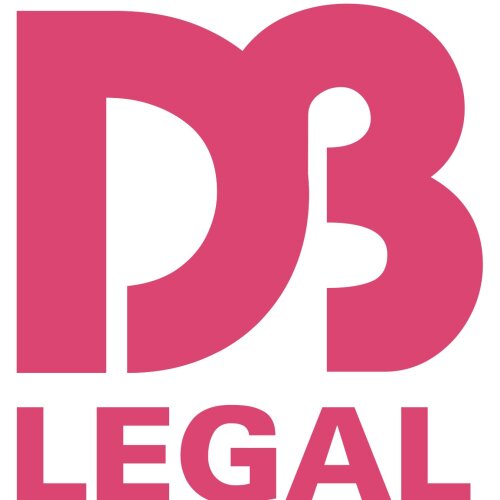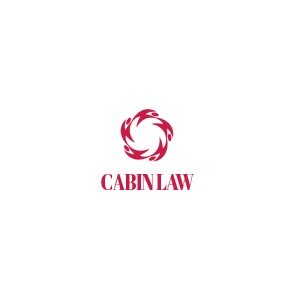Best Climate Change Law Lawyers in Da Nang
Share your needs with us, get contacted by law firms.
Free. Takes 2 min.
List of the best lawyers in Da Nang, Vietnam
About Climate Change Law in Da Nang, Vietnam
Climate Change Law in Da Nang, Vietnam encompasses a set of local, national, and international regulations aimed at combating, adapting to, and mitigating the effects of climate change in the city and surrounding region. As a coastal hub and rapidly developing urban area, Da Nang faces unique environmental challenges such as rising sea levels, coastal erosion, extreme weather events, and the sustainable management of natural resources. The legal framework addresses issues like emission controls, sustainable urban planning, water resource management, renewable energy promotion, biodiversity conservation, and disaster risk reduction. Vietnamese national law forms the backbone of this regulatory environment, supplemented by Da Nang's specific local ordinances and policies.
Why You May Need a Lawyer
Navigating Climate Change Law in Da Nang can be complex due to the interplay of local, national, and international standards. Here are common situations where legal assistance is valuable:
- Starting or investing in renewable energy projects or environmentally friendly businesses
- Handling disputes related to land use, coastal development, or industrial pollution
- Applying for permits or licenses for construction, manufacturing, or environmental impact activities
- Seeking compensation for damage caused by climate-related disasters or environmental harm
- Advocating for community rights affected by development or government action impacting the environment
- Ensuring compliance with environmental standards and emission regulations
- Participating in policymaking or public consultation processes
A lawyer experienced in Climate Change Law can offer informed guidance, negotiate with authorities, help in dispute resolution, and ensure your activities comply with relevant laws.
Local Laws Overview
Key legal provisions related to Climate Change Law in Da Nang are derived from both national legislation and city-based policies. Important aspects include:
- The Law on Environmental Protection 2020: Vietnam's principal environmental statute covering pollution control, emission reduction, biodiversity preservation, and climate adaptation.
- Renewable Energy and Emissions Policy: Regulations encourage investments in solar, wind, and clean energy while requiring businesses to meet emission targets and environmental standards.
- Coastal Zone Management: Local and national regulations govern the use, development, and protection of coastal areas, addressing land reclamation, industrial activity, and erosion control.
- Urban Planning Regulations: Da Nang has adopted “green city” initiatives and policies that influence land use, transportation planning, green building standards, and disaster risk reduction efforts.
- Disaster Prevention and Response: Specific protocols exist for managing risks such as typhoons, flooding, and extreme heat events, including requirements for construction and infrastructure resilience.
Violation of these laws can result in fines, suspension of business activities, or even criminal liability in severe cases.
Frequently Asked Questions
What is Climate Change Law and how does it work in Da Nang?
Climate Change Law refers to the rules and regulations aimed at addressing issues linked to climate change, such as emissions reduction, adaptation strategies, and environmental protection in Da Nang. It combines national Vietnamese laws and local policies tailored to the city's coastal and urban context.
How do local businesses comply with environmental regulations?
Businesses must monitor and control pollution, minimize waste, and adopt sustainable practices as required by the Law on Environmental Protection, local regulations, and specific sector requirements. Compliance may include obtaining permits, conducting Environmental Impact Assessments, and periodic reporting.
Can individuals report environmental violations in Da Nang?
Yes, individuals can report suspected violations to local authorities, such as the Department of Natural Resources and Environment, or use national hotlines. There are procedures for follow-up investigations and possible enforcement action.
What are the penalties for violating climate-related laws?
Penalties can include monetary fines, suspension of operations, mandatory cleanup or restoration, and in serious cases, criminal prosecution against responsible parties.
What support exists for renewable energy projects?
Da Nang and Vietnam offer incentives like tax breaks, preferential loans, and technical support for qualified renewable energy projects, especially solar and wind energy, as part of national and local green energy strategies.
Are there specific climate adaptation policies for coastal areas?
Yes, local authorities implement zoning laws, construction standards, erosion control programs, and infrastructure projects specifically to support climate adaptation in vulnerable coastal zones.
Do residents have a say in environmental policymaking?
Residents can participate through community consultations, public hearings, and by submitting opinions on environmental plans or projects subject to Environmental Impact Assessments.
Is legal assistance available for climate change-related disputes?
Yes, lawyers in Da Nang offer services for disputes concerning land use, pollution, compensation for environmental damage, and regulatory compliance, among others.
What is required to obtain an environmental permit in Da Nang?
Requirements typically include an Environmental Impact Assessment, detailed project descriptions, and demonstration of compliance with emission and waste management standards. Application processes are managed by local agencies.
How can communities prepare for climate change risks legally?
Communities can seek advice on legal rights, access government programs for disaster preparedness, lobby for protective infrastructure, and form partnerships to implement adaptation and mitigation projects.
Additional Resources
Consider these resources and organizations for further assistance on Climate Change Law in Da Nang:
- Department of Natural Resources and Environment of Da Nang: The city's main regulatory body handling environmental and climate policy, permit issuance, and enforcement.
- Ministry of Natural Resources and Environment (MONRE): National body responsible for policy guidance and oversight on environmental issues.
- Vietnam Environmental Administration: Oversees pollution control and compliance with the Law on Environmental Protection.
- Da Nang Bar Association: Provides access to qualified local environmental law professionals.
- Local NGOs and International Organizations: Groups such as the Da Nang Urban Development Agency, WWF Vietnam, and UNDP have projects supporting climate resilience and legal empowerment.
Next Steps
If you need legal assistance related to Climate Change Law in Da Nang, consider the following steps:
- Identify your specific legal concerns, such as business compliance, permits, disputes, or community action
- Gather documentation about your project, activity, or issue
- Contact a reputable lawyer or law firm experienced in Climate Change Law or environmental matters in Da Nang
- Consult with local authorities or agencies, such as the Department of Natural Resources and Environment, for initial guidance
- Explore available resources or community organizations that can provide support or representation
Taking early legal advice can help prevent costly mistakes, ensure compliance, and empower you to take meaningful climate action in Da Nang.
Lawzana helps you find the best lawyers and law firms in Da Nang through a curated and pre-screened list of qualified legal professionals. Our platform offers rankings and detailed profiles of attorneys and law firms, allowing you to compare based on practice areas, including Climate Change Law, experience, and client feedback.
Each profile includes a description of the firm's areas of practice, client reviews, team members and partners, year of establishment, spoken languages, office locations, contact information, social media presence, and any published articles or resources. Most firms on our platform speak English and are experienced in both local and international legal matters.
Get a quote from top-rated law firms in Da Nang, Vietnam — quickly, securely, and without unnecessary hassle.
Disclaimer:
The information provided on this page is for general informational purposes only and does not constitute legal advice. While we strive to ensure the accuracy and relevance of the content, legal information may change over time, and interpretations of the law can vary. You should always consult with a qualified legal professional for advice specific to your situation.
We disclaim all liability for actions taken or not taken based on the content of this page. If you believe any information is incorrect or outdated, please contact us, and we will review and update it where appropriate.













